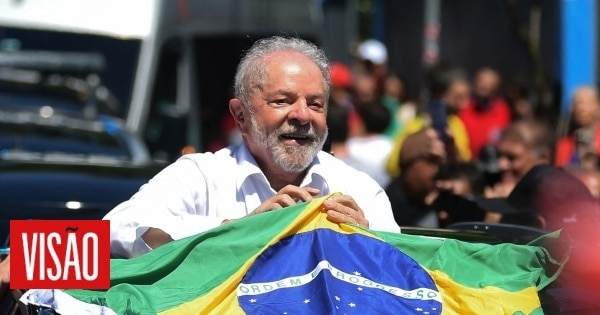I will not speak about Brazil again here to question how it is possible for 58 million Brazilians to have voted for Jair Bolsonaro… Despite this, the election of Lula da Silva “saved” freedom, democracy, hope and the possibility of a future in and around the world. sister country.
From an external point of view, the enthusiasm with which, globally and by the major powers, his victory was received, and immediately recognized with a view to helping to avoid coup temptations, says it all: it is the “return” of a Brazil that has never had such a presence. and as much international prestige as under Lula’s presidency. From an internal point of view, everything is and will be extremely complex and difficult. Half a dozen telegraphic notes to that effect.
1 – Bolsonaro’s procedure after the defeat had its undisguised mark of being, in addition to the rest, undemocratic. The worst was feared. It did not happen, for obvious lack of conditions. Even many of his most prominent supporters, including the military, soon recognized Lula’s “clean” victory. For example, the vice president of the Republic, General Mourão, and Lula’s “executioner”, ex-judge Sérgio Moro: if they had not done so, they would have called into question the legitimacy of their own election as senators… presidents of the Senate and the Chamber of Deputies, this one, the “mighty” Arthur Lira, elected with the support of, and always supporting, Bolsonaro – but already in dialogue with the new government with a view to continuing in office.
2 – Bolsonaro did not call for a “coup”. But he did not openly condemn his supporters who appealed to him in front of military command buildings and at the roadblocks. Blockade that would have had organized forces behind it, “commands” such as those of the fake news militias at the service of Bolsonaro. The courageous minister of the Supreme Court and president of the Electoral ST, Alexandre de Moraes, has already ordered a criminal investigation into the origins and leaders of the demonstrations and blockades. And also to the director of the Highway Police, one of several security forces officials politically chosen by Bolsonaro – a policeman who did not commit to enforcing the law and in several situations was even on the side of the blockers. In addition to having prevented public transport from reaching the polling places with predictable Lula voters.
3 – For eight years, President, Lula left the Planalto with the approval of 83% of Brazilians, an absolute record. His governments, which were never “revolutionary” nor, for that matter, operated left-wing structural changes, exceeded the best expectations, except in one very important aspect: corruption. In which things stayed the same or visibly worse, because more investigated (thanks… to Lula). It explains a lot, but doesn’t justify, what happened. It is now essential for Brazil and democracy that the new government be, in this domain, absolutely untouchable. What, given the Brazilian political system and the practices in it that have long been common, is at least extremely difficult. Contrary to what happened in the past, Lula cannot admit to the government who the parties that will integrate/support him indicate, if they do not have a “clean record” and give solid guarantees of seriousness.
4 – With more than 58 million voters for Bolsonaro, some of whom are as unspeakable and mad with hate as seen, and with a House and Senate that are mostly unfavorable, is it possible for Lula to govern? It is a Herculean task, but the new President, in addition to charisma and vast experience, has a very rare political ability and intuition. Thus, I believe that he will achieve an indispensable minimum of governability. In this sense, it points out what is happening with the transition, with its team being led by deputy Geraldo Alckmin and integrating a council with representatives from 12 parties.
In this precarious telegraphic record, I note that in order to satisfy the various parties that will integrate or support the new government, this will certainly have an increase in ministries, one of which will be the defense of indigenous peoples. And a final underline for the indispensability of integrating figures with the dimension and symbolism of Simone Tebet and Marina Silva.
THE MARGIN
Mario Centeno
When Mário Centeno was chosen as governor of the Bank of Portugal (BP), this decision by the Executive was much criticized or attacked for having integrated him, as Minister of Finance, with the supervision of the bank itself, so it became a kind of his political commissar, saying “amen” to everything, etc., etc.
Centeno was appointed – very well in my opinion, given the competence shown both before becoming a minister and as a minister and president of the Eurogroup. Now, António Costa criticized the ECB’s policy of raising interest rates to fight inflation; and Centeno, on the contrary, defended this ascent. Then, some who did not want him in the BP because he would just be an “agent” of the Government, criticized him for, in the exercise of the independence of the position, having a different position from that of the Government. And the unspeakable André Ventura, who was, of course, one of those who most vociferated against Centeno’s appointment, for being a predictable mere spokesman or servant of the Government, asked for Centeno’s resignation for having a different position from that of the Government…
OTHER ARTICLES BY THIS AUTHOR
+ Brazil in the heart
+ difficult options
+ red alerts

